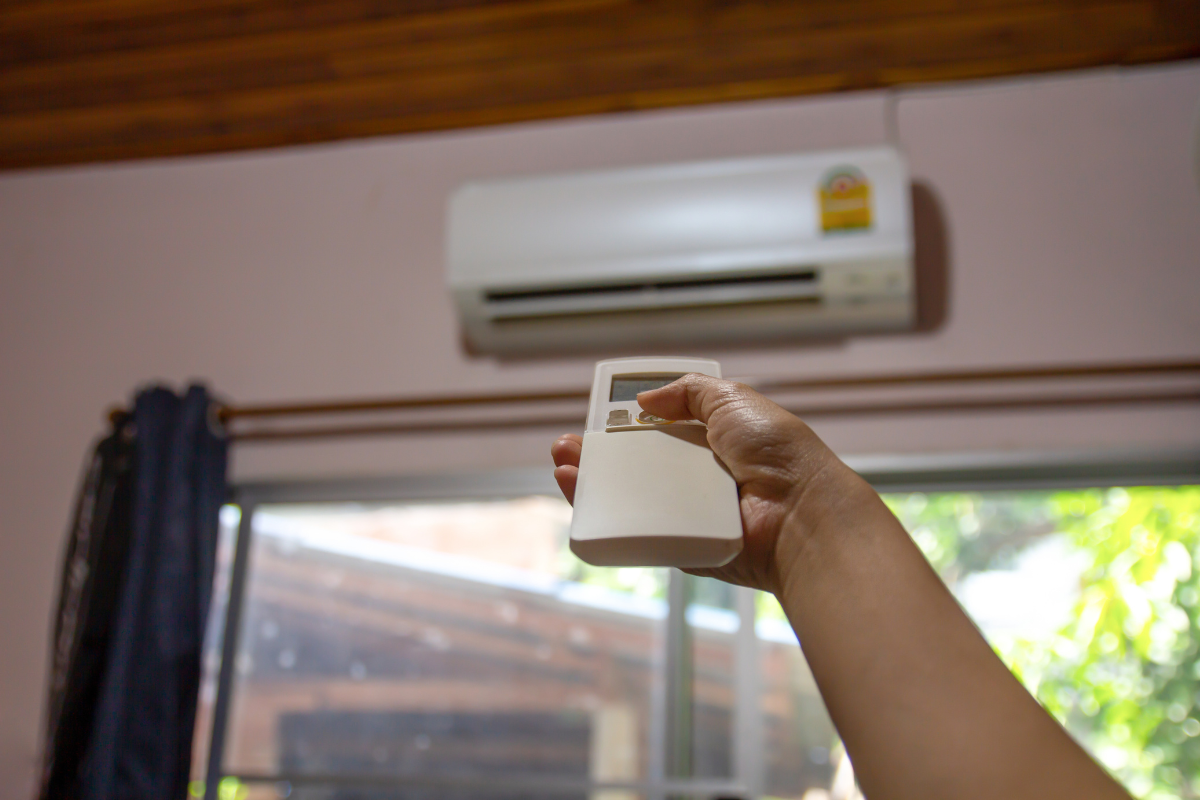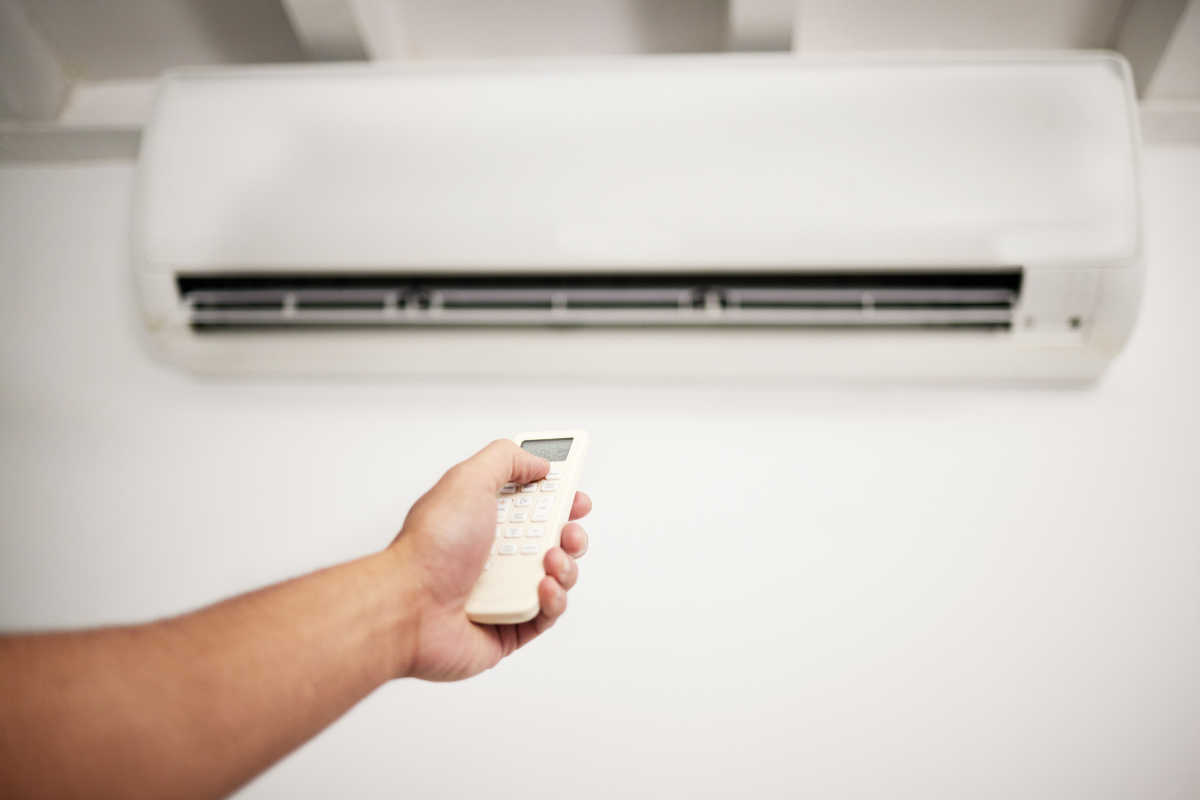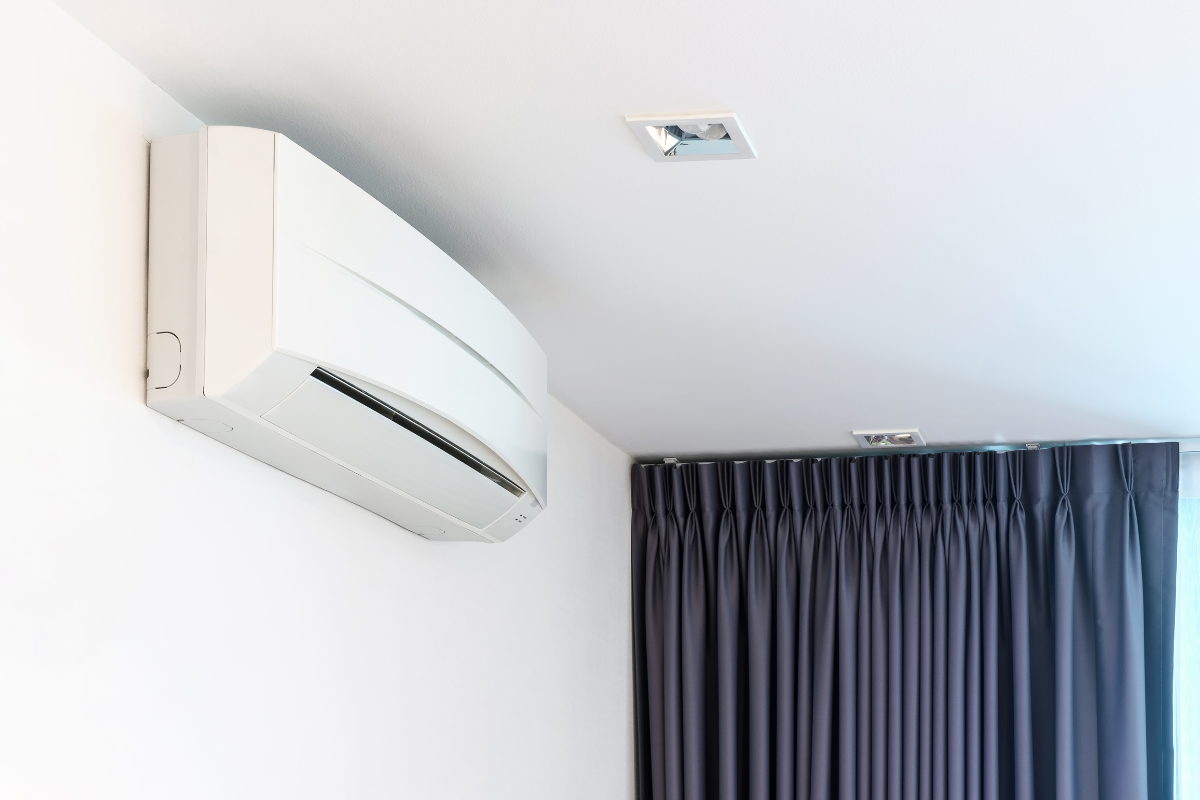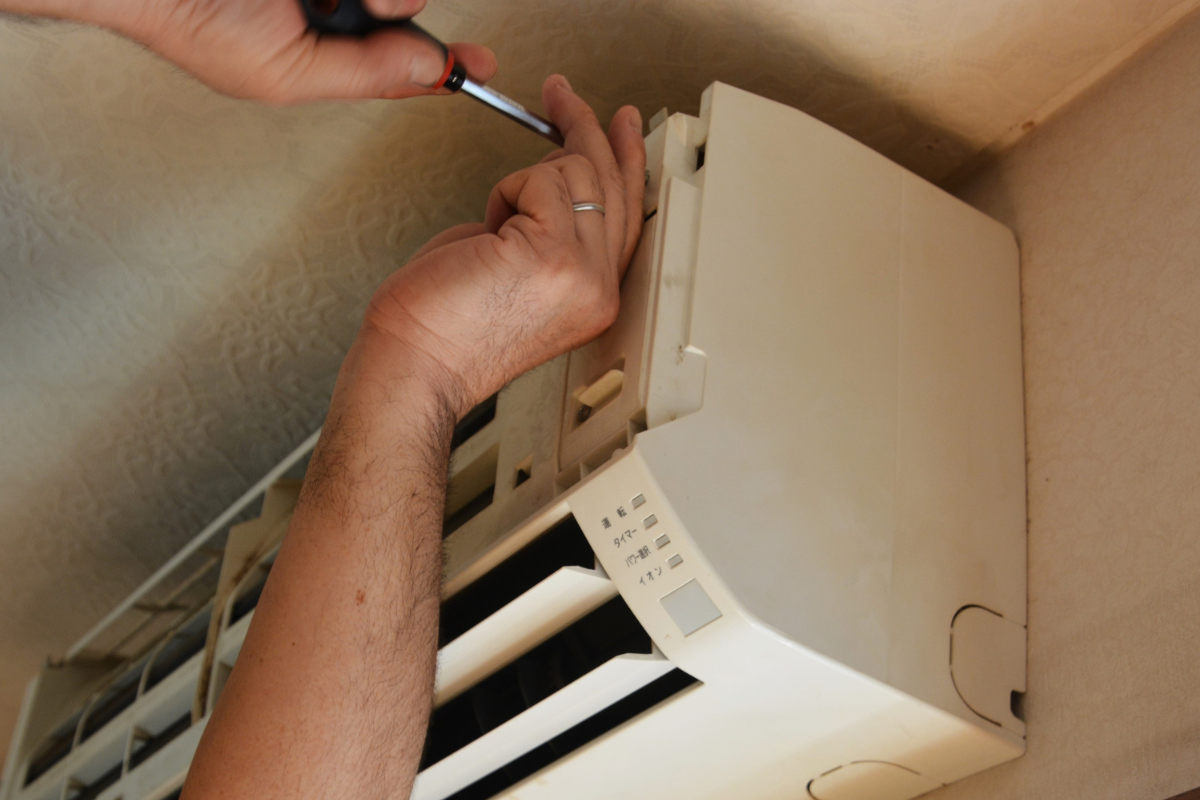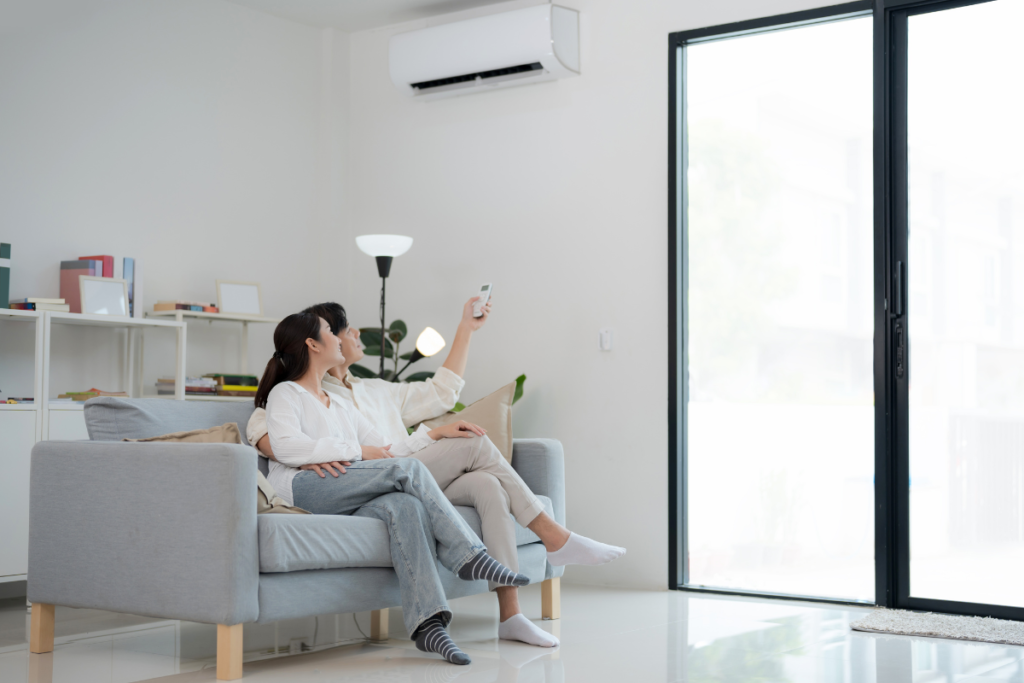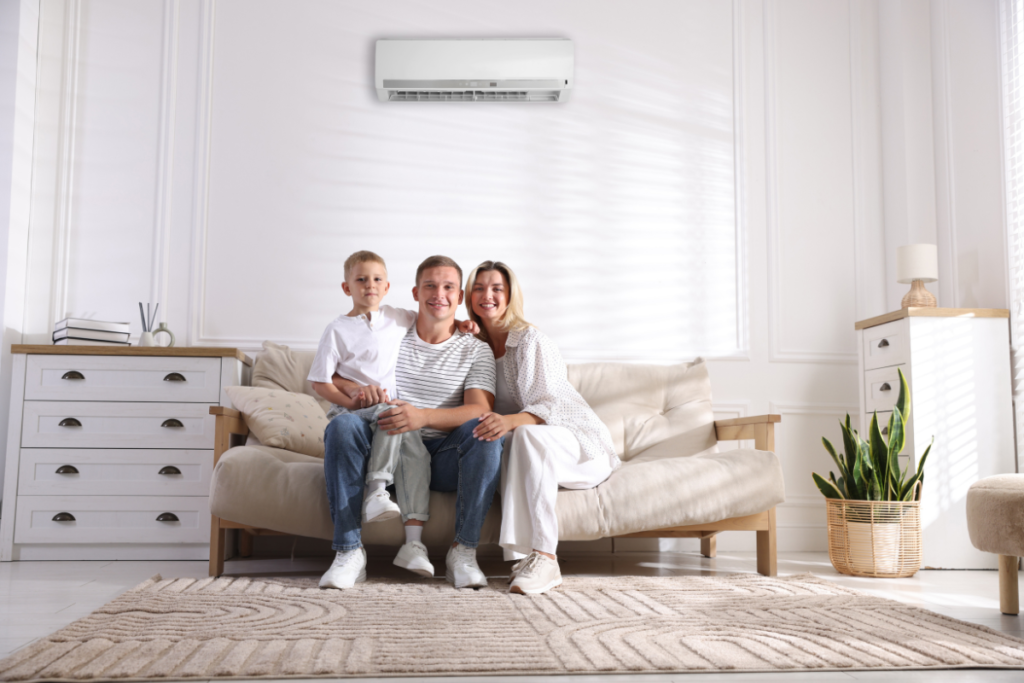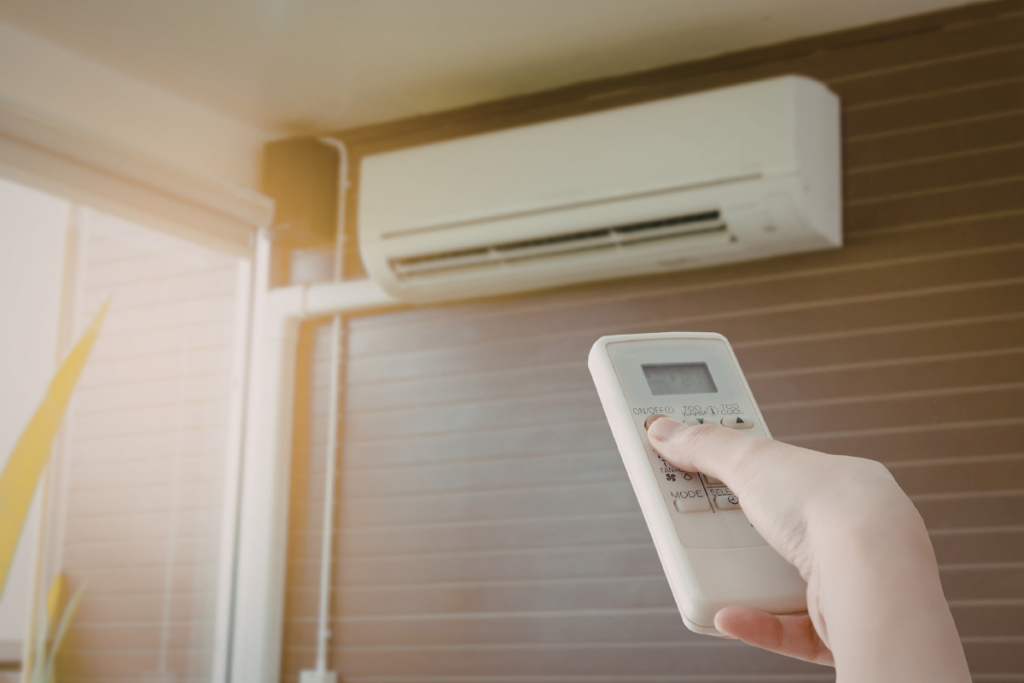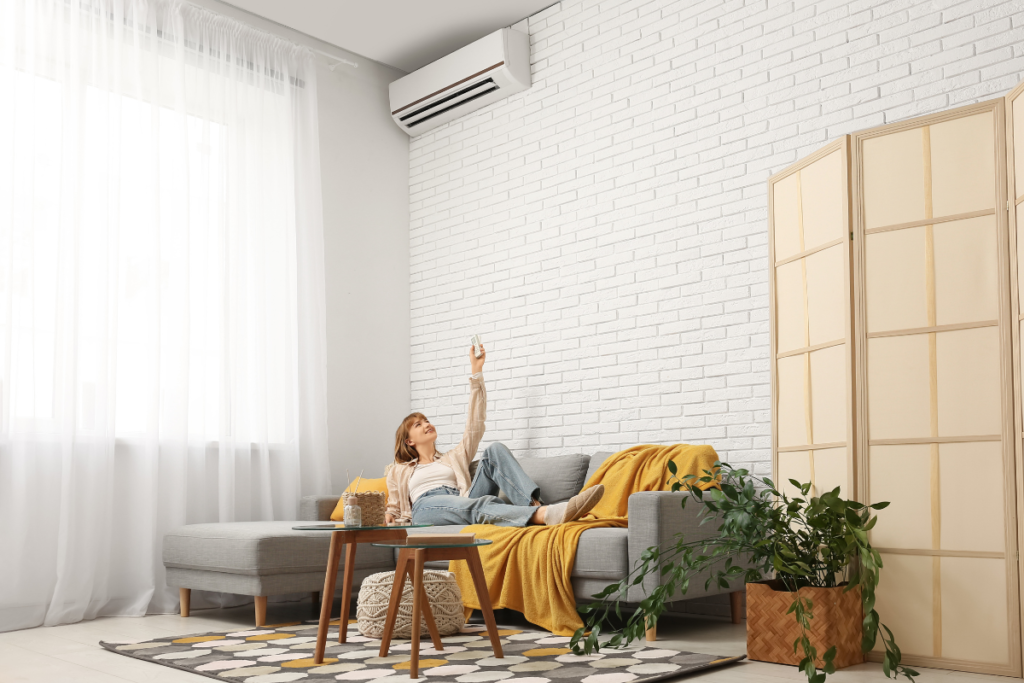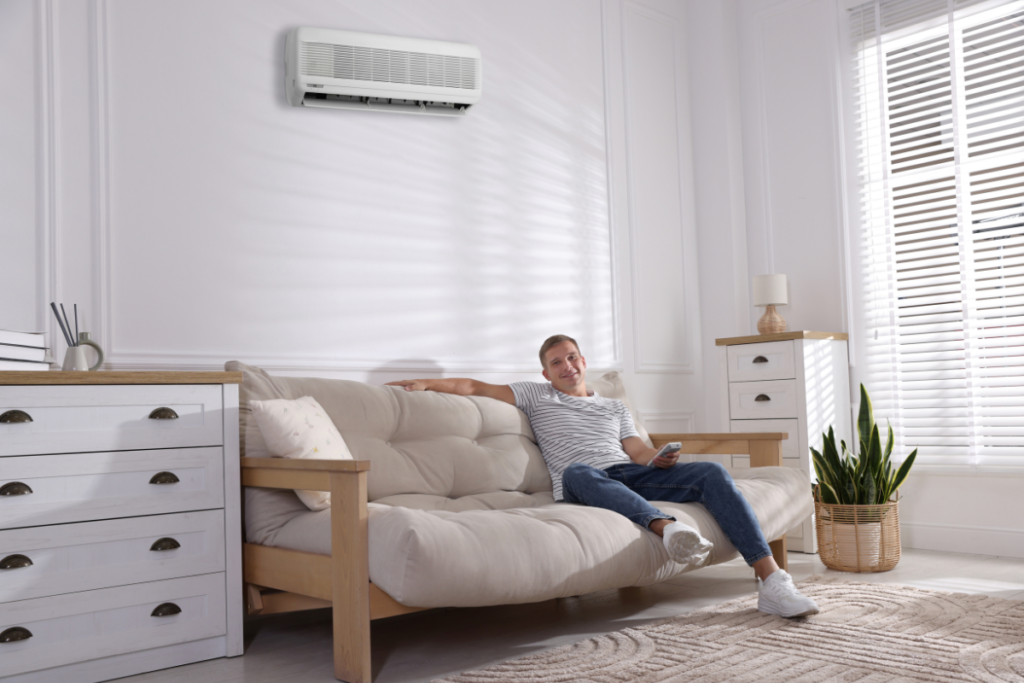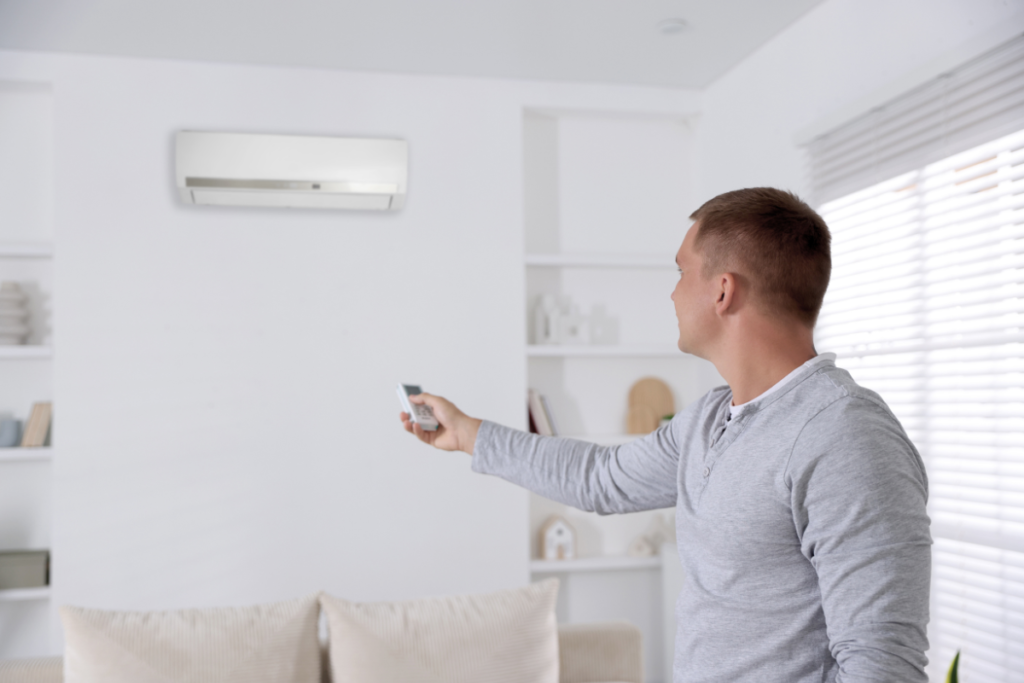As the Gold Coast steps into the year-end festive rush – gatherings, cooking, guests, and long humid days – many homeowners start wondering the same thing: “Should I leave my air conditioner on all day to keep the house comfortable?”. With temperatures rising and homes filling up for holiday celebrations, the answer isn’t as simple as yes or no. It comes down to how your system is maintained, how efficient it is, and how you manage your indoor climate during this busy season.
Table of contents
1. Can an air conditioner handle long, continuous operation?
Most modern air conditioners are designed for long, steady operation. In fact, running all day is not harmful if the system is healthy.
A system can safely run continuously when:
- The filter is clean
- The coils have been serviced
- Airflow is unobstructed
- The AC is correctly sized for your home
Under these conditions, the system maintains heat exchange smoothly and doesn’t overheat.
When does trouble start?
When the AC is forced to run all day because it’s struggling, not because it’s strong.
Common stress triggers include:
- Blocked or dirty filters
- Low refrigerant
- Clogged coils
- Poor insulation
- Undersized unit
These create heat buildup inside the system, leading to frozen coils, short cycling, or compressor strain – the expensive kind of problem nobody wants.
DEEPCHILL – air conditioning Gold Coast insight
Systems rarely break because they “ran too long.” They break because they ran hard under bad conditions.
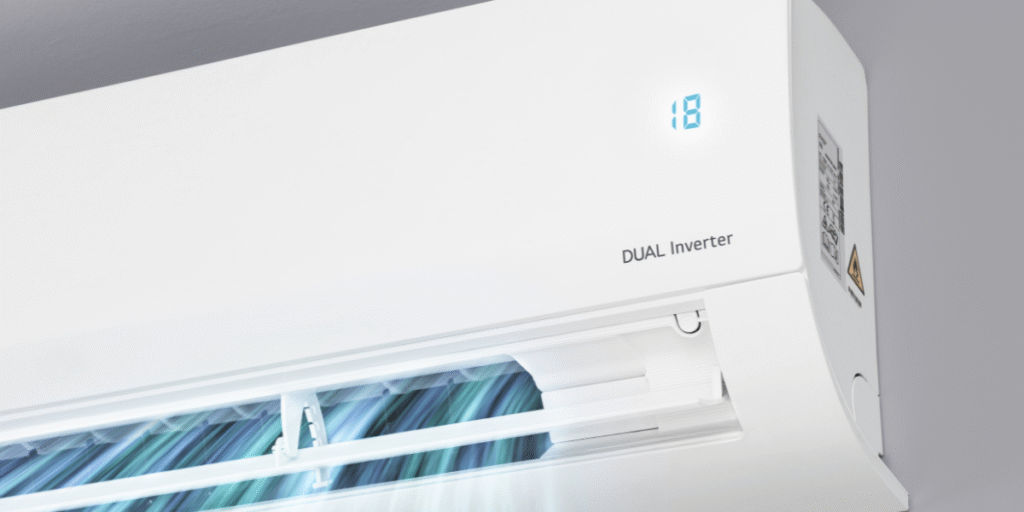
2. How much extra power does all-day cooling really use?
Leaving the air conditioner on all day will increase electricity usage, but the size of the increase depends on:
- The efficiency of your AC
- The age of the unit
- Your thermostat habits
- Your home’s insulation
- Gold Coast humidity levels
A well-maintained, high-SEER unit can run for long periods without massive spikes in power use.
But an older single-stage system?
That’s where you’ll see the bill climb fast.
Why older systems cost more
They draw more power per hour
- cycle on/off more aggressively
- struggle with humidity
- burn more energy than steady operation
Smart thermostats help soften the impact by allowing a temperature setback while you’re away.
Example: Let the house warm from 23°C to 26–27°C when you’re out → drastically lowers load without fully restarting later.
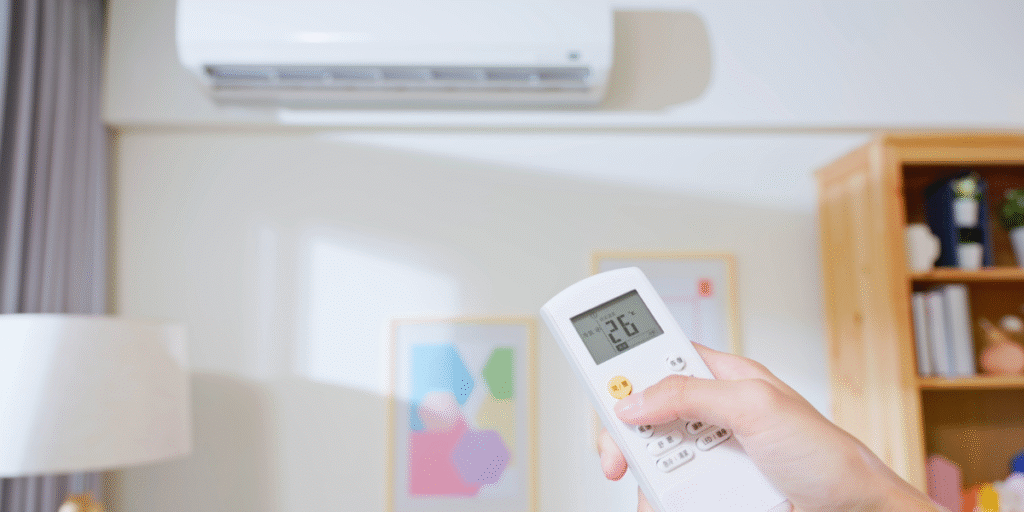
3. Is turning the AC off and on better than keeping it running?
Surprisingly, no – not during hot Gold Coast afternoons.
Turning your AC off allows:
- Heat to build up
- Humidity to surge
- Walls and furniture to store heat
When you finally switch it back on, the system must cool the entire structure, which takes longer and uses more power.
Instead, aim for a controlled setback:
- Daytime away temp: 26–28°C
- Nighttime temp: 24–26°C
- Bedrooms + fans = comfortable without excess cooling
This method protects the unit from extreme load swings and keeps your home consistently comfortable.
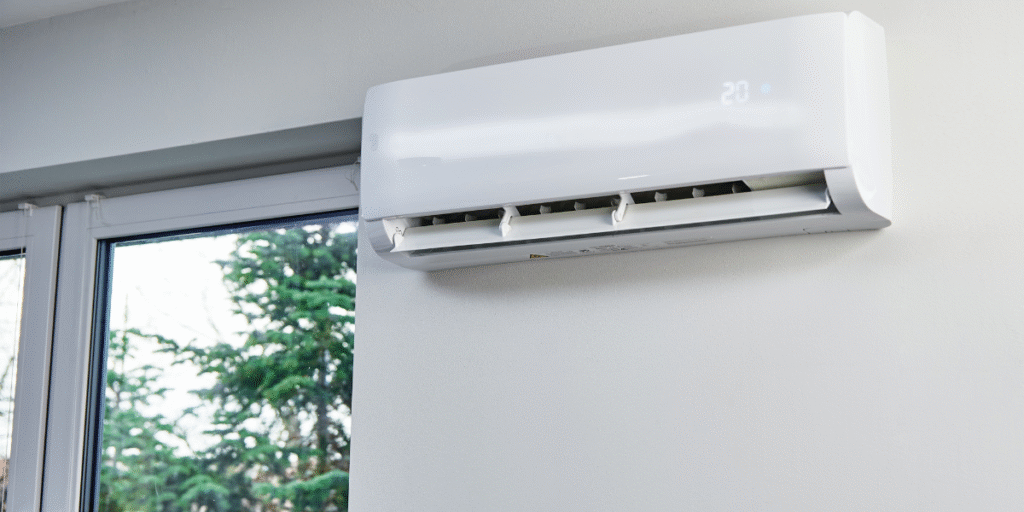
4. Easy maintenance habits that keep your system safe all day
You can leave your air conditioner running all day – if you keep it healthy.
Here are the practices DEEPCHILL – air conditioning Gold Coast team recommend:
Check the air filter every 30–60 days
A dirty filter is the #1 cause of overheating and high power bills.
Clear the vents and return air grille
Furniture, curtains, rugs – anything blocking airflow forces the system to overwork.
Book preventative maintenance
A yearly tune-up helps catch:
- Low refrigerant
- Failing capacitors
- Dirty coils
- Weak airflow
These small issues create the big ones.
Keep doors closed to unused rooms
This reduces load and makes cooling more efficient.
Evaluate your system’s age and size
If your AC is 10–15 years old or undersized, running it all day is harder and more expensive.
Modern inverter systems run longer at low speed – quietly, steadily, efficiently.


